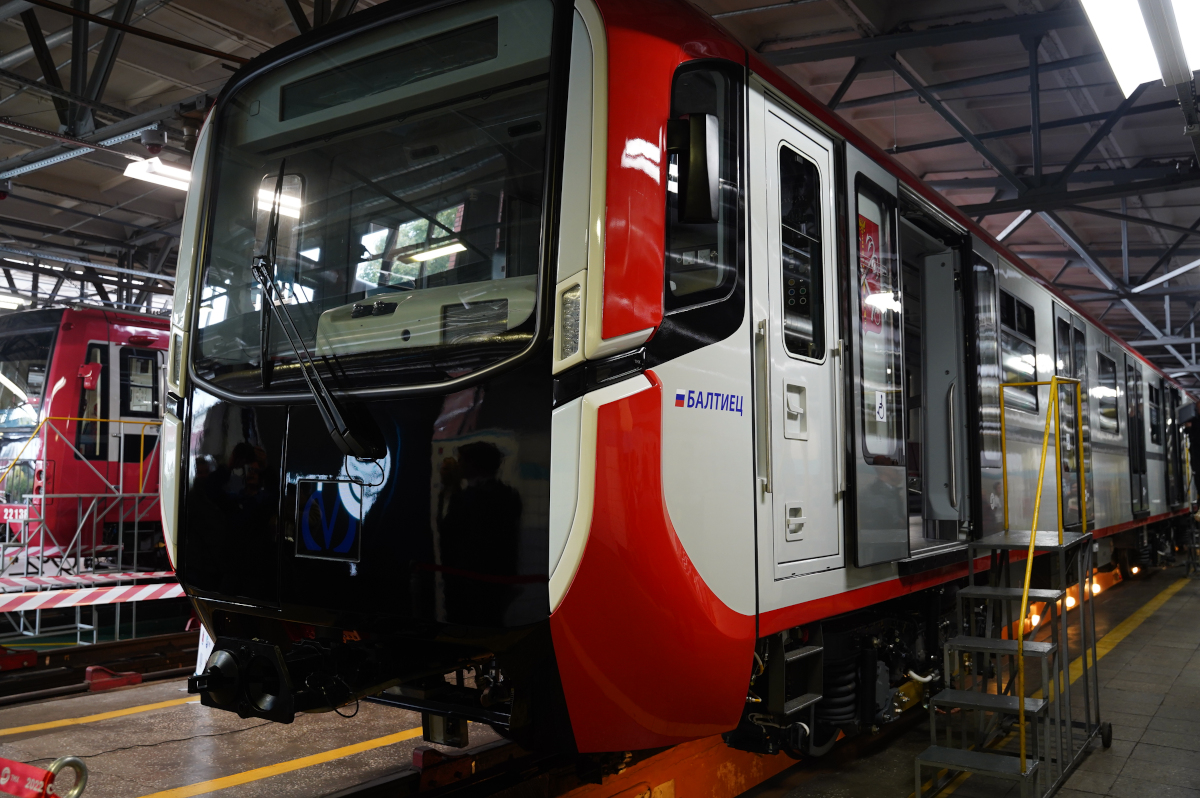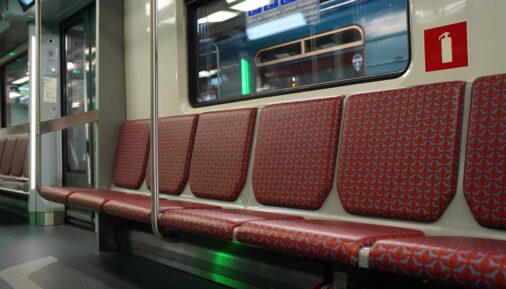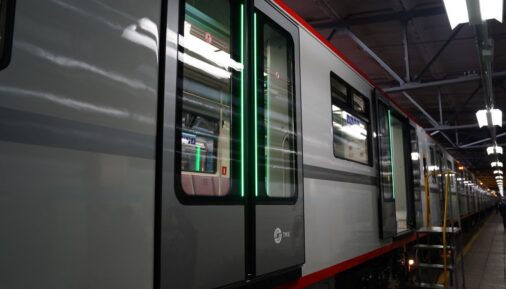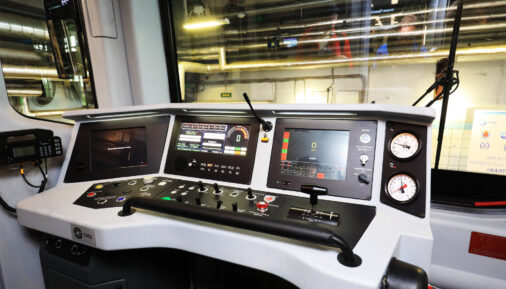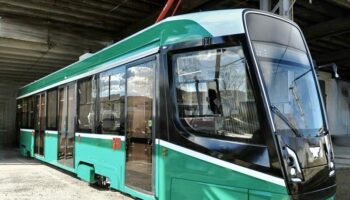Russia: The Baltiets train was delivered to the city as a part of the contract for 950 metro cars signed in August. It will be on trials until November and then will be put in operation. TMH plans to deliver 8 such trains until the end of 2022.
The delivery of the Baltiets (ex-Smart) trains will be carried out in 2022-2031 under a leasing scheme: the leasing contract between the St. Petersburg Metro and the Transholdleasing includes payments for 25 years, and its total cost will be 242.6 bln RUR ($4 bln USD), which makes it one of the largest in the global rolling stock market in 2022. The cost of the rolling stock itself will be 129 bln RUR ($2.1 bln USD or $2.3 mln per car).
The 8- and 6-car trains will be formed from the cars of three modifications – head, intermediate motorized and non-motorized. The rolling stock is purchased by the St. Petersburg metro to replace Em-501 and Ema-502 series trains on Line 1 (Kirovsko-Vyborgskaya) and then 81-717.5/714.5 trains on Line 2 (Moskovsko-Petrogradskaya).
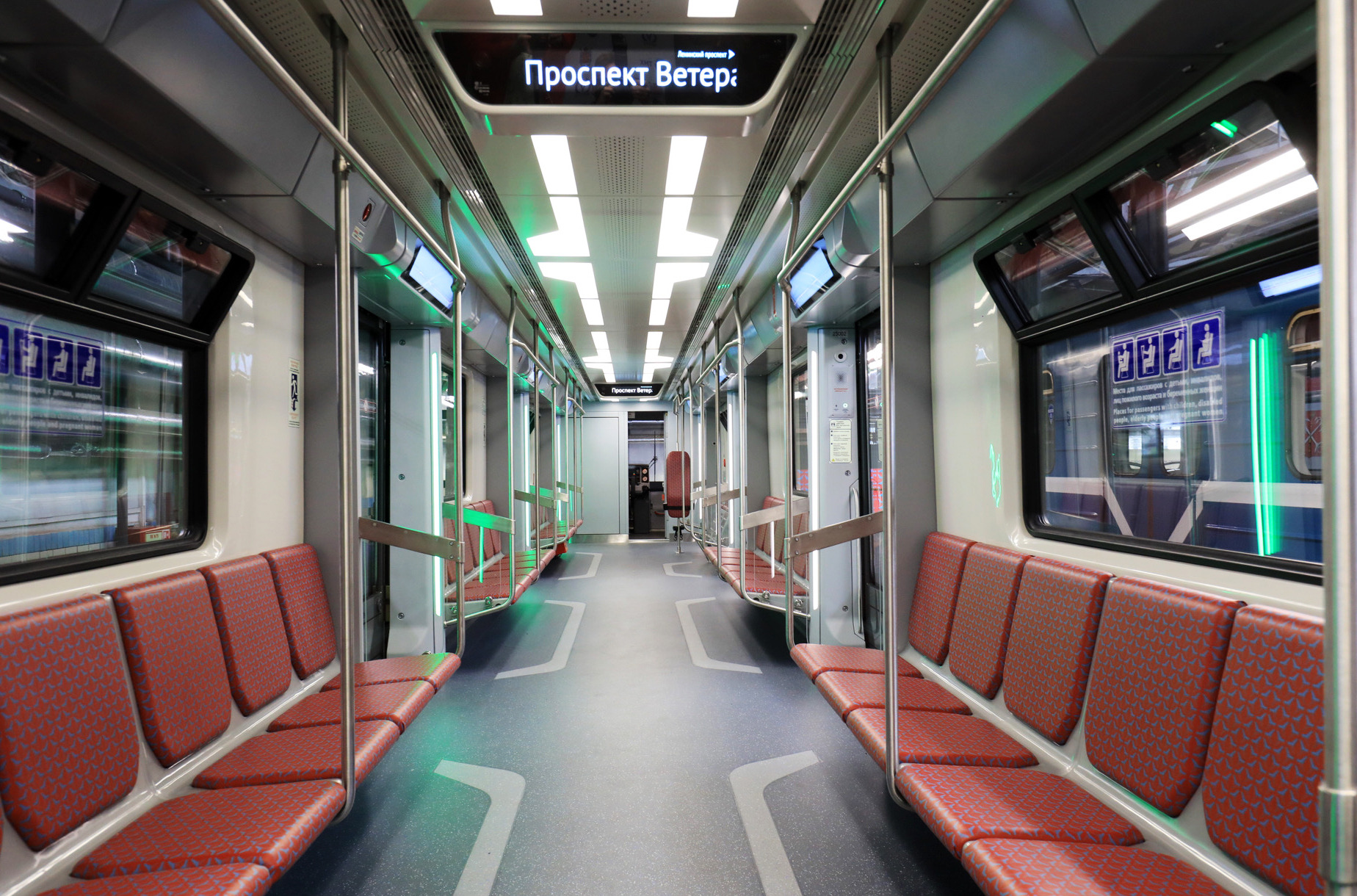 Interior of the Baltiets metro train. Source: TMH
Interior of the Baltiets metro train. Source: TMH
According to TMH, the Baltiets train is designed in in conformity with the requirements of the St. Petersburg metro and the performance history of the TMH rolling stock which was supplied to the city in previous years. The appearance of Baltiets was created with the participation of the 2050.LAB Design Center. TMH declares that the share of the Russian-made materials, components and parts in the train is over 90%.
Key design solutions:
-
- asynchronous traction drive that allow to save 30% of energy in comparison to the rolling stock in operation,
- batteries which provide the 200 m range of autonomous run to ensure shunting operations in depots,
- electrodynamic braking system,
- maintenance-free couplers,
- new control board,
- sliding doors with a width of 1,400 mm,
- diode tapes on door portals that inform about opening and closing of doors with color-coded indication,
- increased glass fixing in interiors,
- ventilation systems with UV air purification,
- special place for the safe travel for passengers with disabilities.
In comparison with the metro trains delivered by TMH to Moscow and other cities in recent years, the inter-car gangways throughout the train are not integrated into the rolling stock for St. Petersburg. As to Roman Ekimov, the Head of the Avtovo depot in St. Petersburg, such requirement was asked by the metro operator for security reasons.
Also, in spring this year, the Key Systems and Components group (KSC) reported on the mass production launch of SiC auxiliary converters for the Baltiets trains. It was noted that SiC ACs are significantly lighter in comparison to previous generations of such components, have smaller dimensions, contribute to reducing power losses, lowering the level of acoustic noise and increasing efficiency.
Earlier, in June, TMH and St. Petersburg signed an agreement on the development of electric transport production in the city. It was declared that investments in the project in 2022-2024 should amount to 3 bln RUR ($50 mln USD), and the facilities will produce rolling stock not only for St. Petersburg, but also for deliveries to other cities of the country. At the same time, the range of products planned for production under the project was not disclosed. Currently TMH owns the production site in St. Petersburg, Oktyabrsky Electric Car Repair Plant, that will be a supplier of the Baltiets trains.



